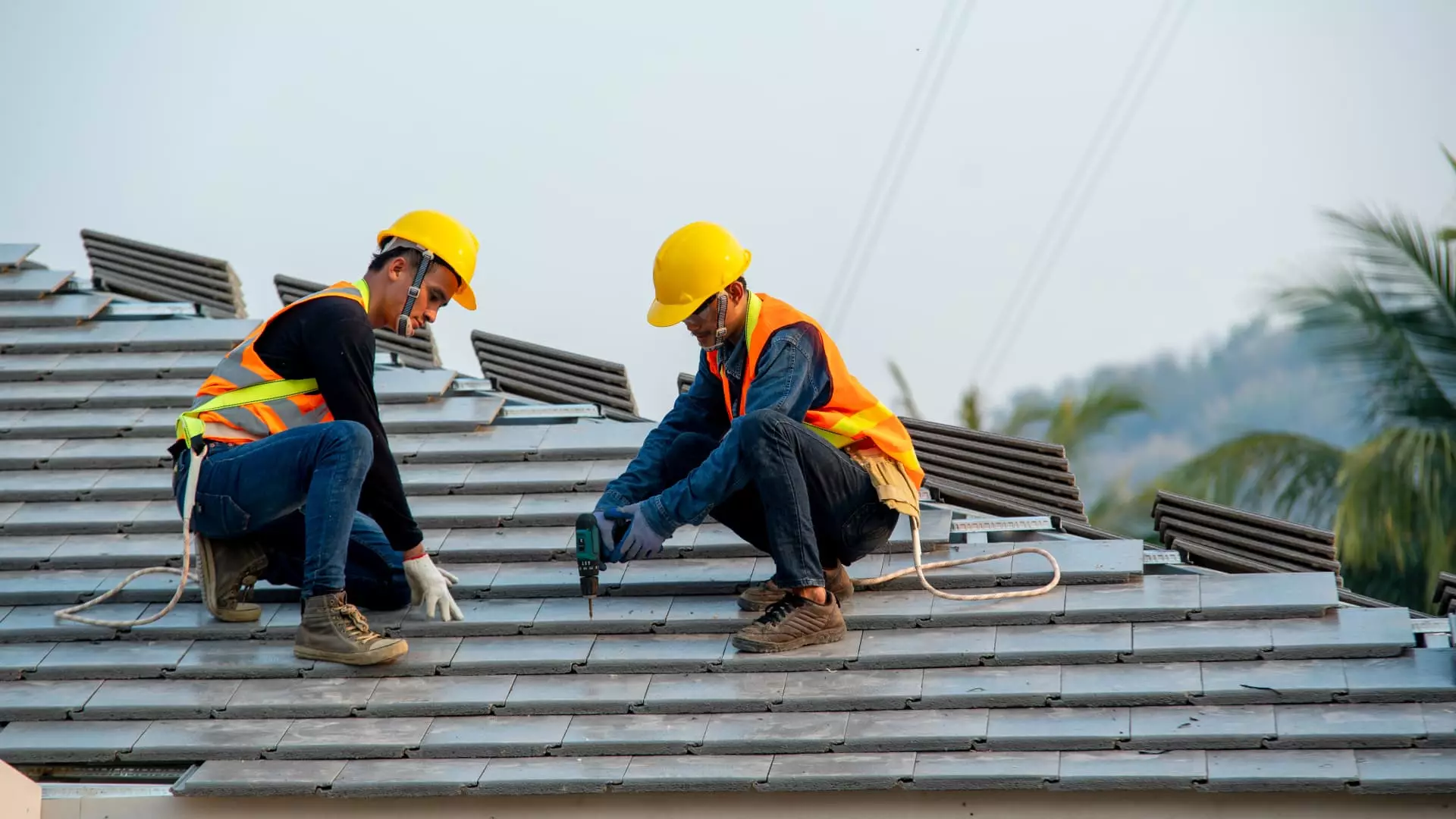Smart Strategies for Hiring a Home Contractor: Proceed with Caution

Home repairs and renovations are unavoidable aspects of homeownership, but they can often come at a steep price. As homeowners grapple with rising costs, some may find themselves willing to compromise on certain prerequisites when hiring a contractor. A recent survey by Clever Real Estate revealed that around one-third of homeowners might choose to engage a contractor with a questionable resume to save money. While this may seem pragmatic in the short term, experts caution against the potentially higher costs these decisions can incur in the long run.
The reality is that prioritizing cost-cutting measures over sound experience, reputation, and professionalism can easily lead to disastrous outcomes. A contractor lacking integrity may overpromise and underdeliver, resulting in shoddy workmanship or, worse, disappearing without completing the job. As Jamie Dunaway-Seale, who authored the Clever report, pointedly notes, the risk of hiring less reputable contractors can lead to unforeseen expenses that may far exceed any initial savings.
When selecting a contractor, homeowners list reputation and experience as critical factors, outweighing even cost considerations. According to the Clever survey, 25% of homeowners prioritize reputation, while 23% place emphasis on experience. Unfortunately, some homeowners still feel pressured to make compromises, which can lead them into the traps set by untrustworthy professionals.
Angie Hicks, co-founder of the home service platform Angi, advises against hiring someone with a questionable history, suggesting that lesser-experienced yet reputable contractors should be preferred instead. The simple rationale is that newer entrants may seek to build a solid reputation by doing excellent work, whereas those with blemished records often exhibit traits like dishonesty or subpar workmanship.
The risks associated with hiring unreliable contractors are exacerbated during times of crisis, such as natural disasters. Catastrophic events, like hurricanes, not only create urgent repair needs but also attract unscrupulous individuals hoping to capitalize on desperate homeowners. After such disasters, fraud becomes a serious concern, and officials from the Justice Department and the Consumer Financial Protection Bureau issue warnings regarding price gouging and scams.
Loretta Worters from the Insurance Information Institute warns that after a disaster, con artists can appear out of nowhere, claiming they can deliver repairs only to take homeowners’ money and vanish. Homeowners must exercise caution and vigilance when engaging contractors under such volatile circumstances. You don’t want to become a victim of contractor fraud in addition to suffering losses inflicted by a storm.
Essential Steps for Hiring a Contractor
Recognizing the potential pitfalls is vital, but what practical steps can homeowners take to ensure they’re hiring reputable contractors? Experts recommend several tips that can help green-light a contractor’s qualifications.
The first step involves conducting thorough background checks of potential hires. Personal recommendations from friends or family are invaluable; they can lead you to trustworthy candidates. Following that, it’s then important to dive into online reviews on platforms that provide insights into previous clients’ satisfaction. It’s advisable to ask for references directly from contractors, and any reluctance to provide this can serve as a red flag indicating a lack of confidence in their past work.
Another critical aspect to consider is verifying the contractor’s credentials. Homeowners should request proof of insurance as well as any necessary licenses, especially in states where licensing is mandatory. The National Association of Home Builders emphasizes that all professional contractors should be insured and able to present documentation accordingly.
Moreover, early interactions with potential contractors can reveal a lot about how they operate. Pay attention to whether they offer detailed estimates and if payment terms, such as upfront costs, are discussed openly. A general guideline suggests that upfront payments should not exceed 10% to 20% of the total project cost. Lastly, obtaining multiple estimates will provide context on the pricing, helping to identify any outliers that might indicate a scam.
In essence, while the allure of finding a bargain contractor is tempting, the possible repercussions of engaging with a fraudulent or incompetent professional can lead to significant financial and emotional upheaval. As homeowners navigate the complexities of hiring contractors, diligence is key. By taking the time to conduct comprehensive research, check backgrounds, and understand the terms, homeowners can safeguard themselves against ineffectual and exploitative contractors. After all, investing properly in quality home repairs ultimately pays off, both immediately and in the long run.





